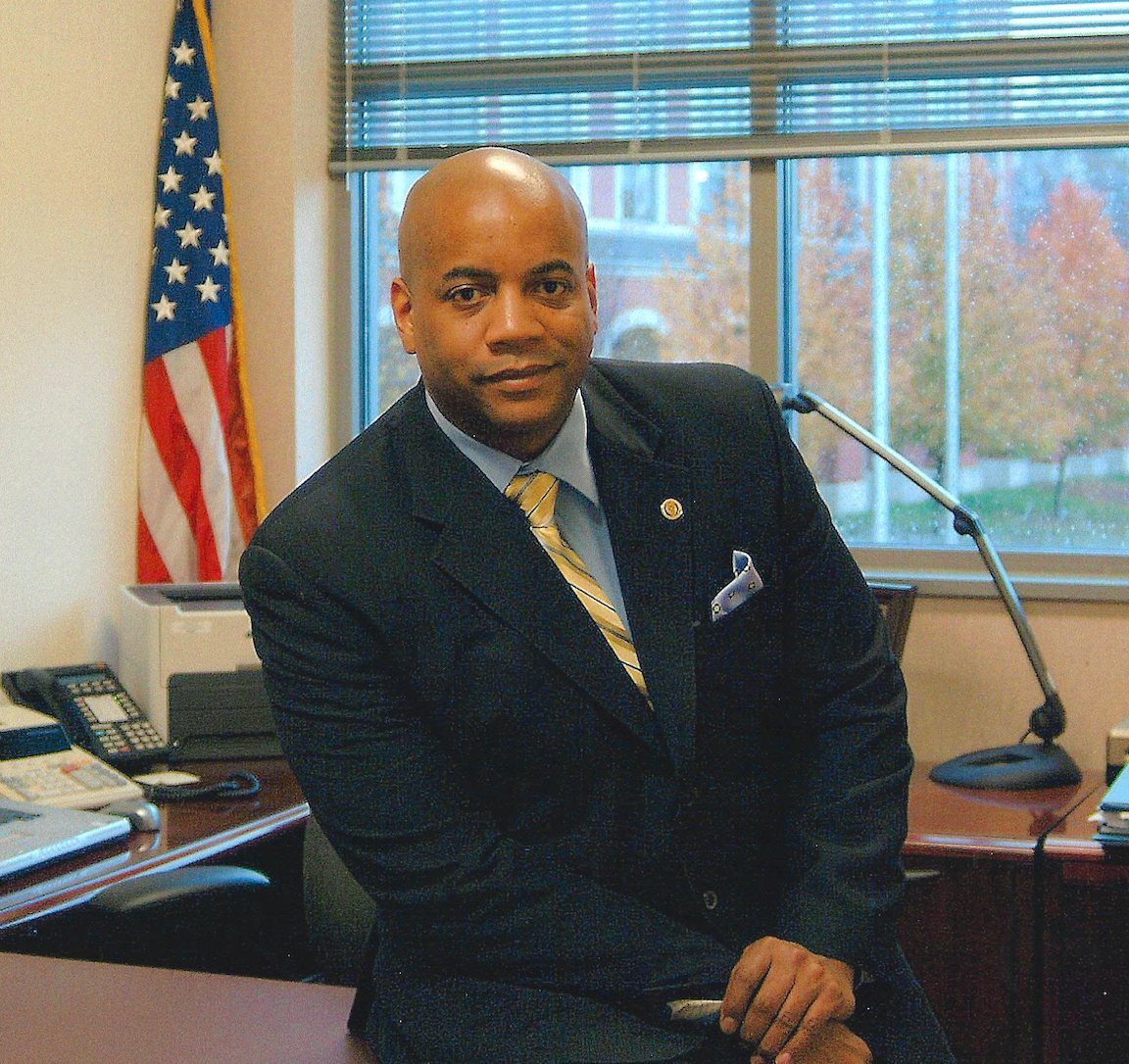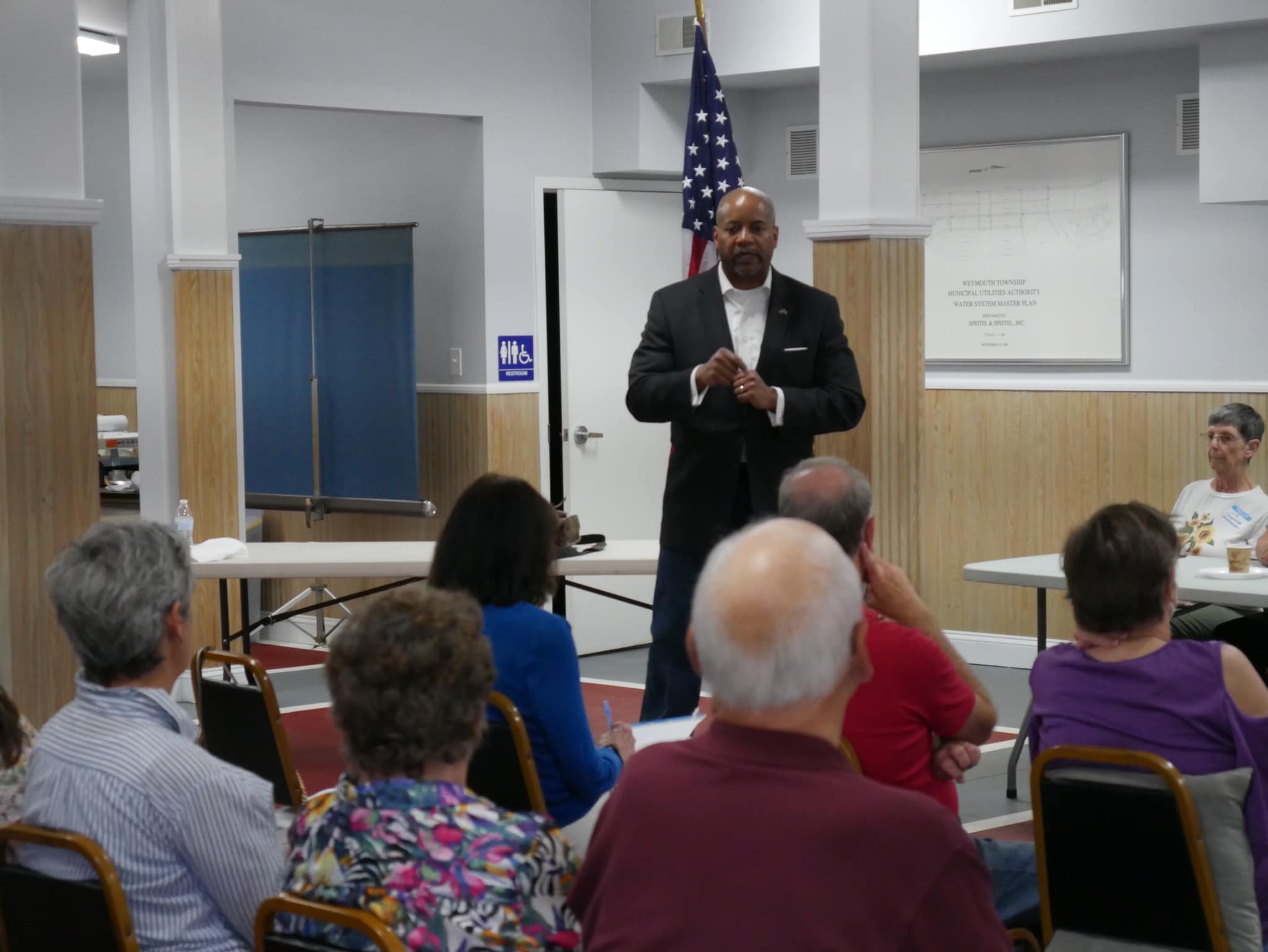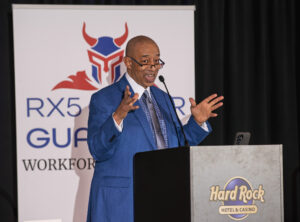Exclusive: Congressional Candidate Tim Alexander Addresses Black, Hispanic Issues

Tim Alexander. Photo courtesy Tim Alexander.
BY CLYDE HUGHES | AC JosepH Media
ATLANTIC CITY — In an exclusive interview with Front Runner New Jersey, Democratic Congressional candidate Tim Alexander accepted an invitation to address some of the issues affecting the local and national African American and Latino communities.
A former law enforcement officer turned civil rights attorney, is running for the Democratic nomination to take on Republican U.S. Rep. Jeff Van Drew for South Jersey’s Congressional seat.
Alexander has won the endorsement of the Democratic Party in counties around the region that covers the district.
Here are the answers to the questions asked by Front Runner New Jersey.
FRNJ: The Buffalo, N.Y shooting by an alleged white supremacist highlights the continued issue of racism in the U.S. What do you think can be done to address continued systemic racism in the U.S. and particularly in the district?
Tim Alexander: We, as a society, cannot eradicate racism without addressing the root cause, acknowledging it, learning about it, and engaging in open and honest dialog. Since people hit the streets to protest the murder of Mr. Floyd (and others) and the systemic racism, the opposition to peace and unity has been protesting the prospect of CRT being taught in our schools. They were protesting a nonexistent activity — CRT is a graduate-level course mainly taught in law school as an elective. Yet, I have not seen anyone protesting the teaching of “replacement theory.” Replacement theory has been pushed out by those on the right and has contributed to the death or injury of countless people. There is no clear path to ridding this country of the disease of racism, but through conversations and understanding, there remains hope.
FRNJ: The COVID-19 pandemic laid bare healthcare disparities in New Jersey and around the country, where Black and Latino were disproportionately affected by the coronavirus. What can Congress do to help address these disparities? How would you, as a U.S. Representative, speak out on such issues?
Tim Alexander: Congress can, and should, implement programs that increase healthcare access to lower-income Americans, of whom a disproportionate number are Black and brown people. For decades, we have known that there exist great disparities in health care access in certain communities, impacting not just COVID-19 testing and treatment but also the high mortality rates in maternity among back and brown women. Once again, all things point back to acknowledging our history as a country in how we denied health care and treatment to people based on race and gender. We must work to establish trust in certain communities if we are to be successful in turning attitudes in health care. We also need to institute programs that combat bias in medical personnel and increase the diversity amongst doctors and nurses, as many people from marginalized communities have been medically underserved by providers who don’t believe them about their symptoms. As a Representative, I will be on the front lines of fighting on this issue, not just making public statements but communicating directly with the communities to adequately identify needs and bridge the divide with healthcare institutions to make reforms.
FRNJ: Some states have banned so-called Critical Race Theory but it has challenged the way Black History and the history of other marginalized communities are taught. What is your thought on such legislation and do you favor measures to protect the teaching of Black History and the history of other races in the United States?
Tim Alexander: Critical Race Theory (CRT) is not being taught in any K-12 school in any community in our country. As previously stated, CRT is a graduate-level course taught in law schools that identify the Intersectionality of Race and society and is used to explain social, political, and legal structures and power distribution through the lens of race. Politicians and pundits have used the lack of understanding of CRT to prevent the teaching of America’s unfiltered history. To learn anything from history, we have to learn all of it, the good, the bad, the beautiful, and the ugly. For too long, we have let a vocal minority, many of whom do not have children in schools, push a sanitized, narrow narrative of our nation’s history that excludes the truth of how this country came to be. I believe America is the greatest country on earth, not because we have always been perfect but because in the face of our worst trials and tribulations, we survived, and in many instances, we thrived when every force was against us. Our history is a shared one, the good and the bad, and we all must embrace it.
FRNJ: What role can Congress play in improving race and ethnic relations?
Congress must do more to encourage open and honest dialog about race in this county. Members must have the courage to initiate these talks and encourage everyone to participate. Members must use their platforms to push back against the narrative that white men built this country for white men. We as a nation are better than that; we must demand that members embrace teaching the truth. I will fight to end the war on drugs and call it out for what it was – a war on poor people and people of color. Members of Congress also have a responsibility, as representatives of the people of their district, to have a team with diverse backgrounds and perspectives to help inform their decision-making.
FRNJ: Immigration reform has been uneven in this country for decades and has increasingly been used as a political tool, as witnessed recently how Ukrainian immigrants have been treated compared to immigrants from Central America. What can be done to make immigration fairer and more even-handed?
Tim Alexander: The Republican party tries to reduce the issue of immigration to our Southern Border. But there are twice as many people in our country who overstayed their visa instead of crossing a border covertly, yet only those who crossed the border are permanently banned from a path to citizenship. Members need to have the courage to call that dog whistle rhetoric for what it is — hate. We need a smart and secure immigration system that lets us know who is in our country, not a racially charged focus on one particular border. Historically, unauthorized immigration became a problem as we closed and narrowed legal paths to enter the country. We need to return to a system that provides ample pathways for legal immigration. The terrorist attacks in this country have been conducted by Americans more than anyone else and certainly more than anyone crossing our Southern border.
FRNJ: Since the death of George Floyd, there has been a call for social justice in policing and other areas with the predictable push back in supporting the police. How can that balance with struck where the police are supported in protecting our communities yet also held responsible when questions of brutality arise?
Tim Alexander: As both a former law enforcement officer and a former victim of law enforcement misconduct, I navigate this issue with a unique perspective. One of the biggest things we need to change through training reforms is the culture of dysfunctional norms that discourage police officers from providing a service to everyone in the communities they serve. We must develop a culture that exposes the abusers of their authority no matter their rank or years of service. We must move law enforcement to a committed profession serving the community instead of treating officers as overseers and adversaries. We also need to address qualified immunity by eliminating the malice component or qualified immunity in its — no other profession has such protections. I also wish to address the needs of communities by providing separate non-law enforcement response teams for mental health and drug addictions. Lastly, I propose that new officers spend a year or more doing community service before becoming eligible to serve as officers. Again, have recruits focused on the community and the needs of the citizens.
Follow Us Today On:
Subscribe to FRNJ EXTRA premium content newsletter for exclusive information on this event and other premium content, courtesy of Front Runner New Jersey!
Note from AC JosepH Media: If you like this story and others posted on Front Runner New Jersey.com, lend us a hand so we can keep producing articles like these for New Jersey and the world to see. Click on SUPPORT FRNJ and make a contribution that will do directly in making more stories like this available. Thank you for reading!





